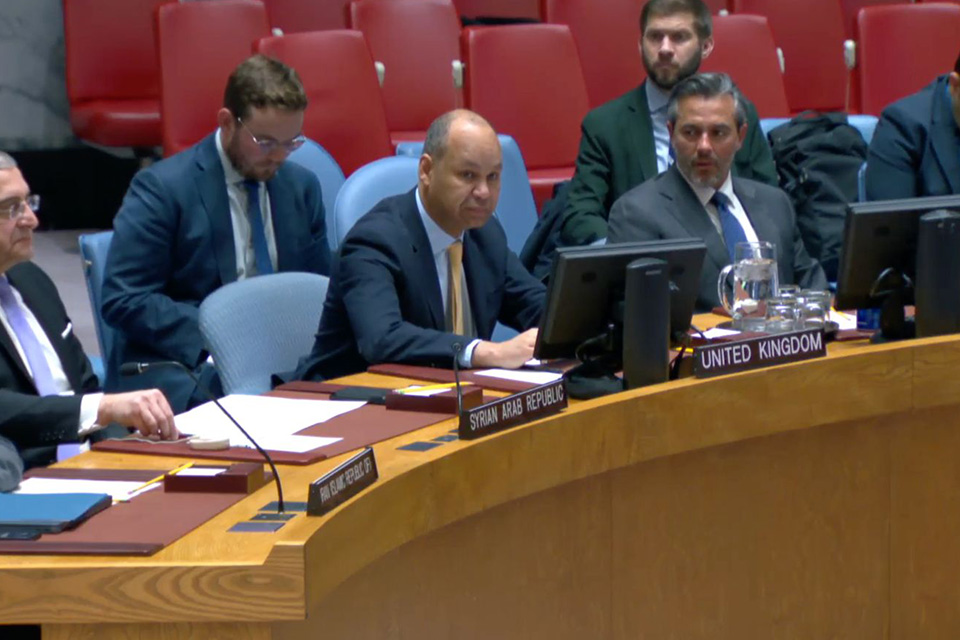To achieve sustainable peace in Syria, the Assad regime must engage in the political process: UK statement at the UN Security Council
Statement by Ambassador James Kariuki at the UN Security Council meeting on Syria.

Thank you, President, and I thank Special Envoy Pedersen and ASG Msuya for their work, and the work of their teams, in trying to alleviate the suffering for the Syrian people as well as for their briefing today.
Thirteen years ago, the Syrian people took to the streets in peaceful protest to demand their freedom, dignity, and respect for human rights. The Assad regime suppressed these protests and launched a ruthless campaign of violence that continues to this day. Over 500,000 people have died and over half of the Syrian population have been forcibly displaced.
Thirteen years on, we need to see three key changes.
First, there needs to be urgent, positive steps on the political process, based on Resolution 2254. Month after month, this Council comes together to stress the importance of SCR 2254. The Format, and the Arab Contact Astana Group, have underscored its importance. But we have not seen the parties, and specifically the regime, take the steps that this Council called for. Too much time has elapsed since the Constitutional Committee last met. We welcome the continued efforts by Special Envoy Pedersen to convene a meeting of the Constitutional Committee in the near future. We reiterate our call for the Assad regime to engage meaningfully in the political process.
Second, the international community needs to increase its humanitarian support and contribute to early recovery. Humanitarian support and early recovery remain critical. The UK remains a committed donor throughout the conflict, contributing over $4 billion since 2011. We call on others to join our early recovery efforts which have supported education and learning, particularly for girls, and opportunities to support people’s livelihoods to increase their self-reliance.
In a time of constrained resources, it is the responsibility of all parties in enabling principled, sustainable and unhindered access, including cross-border, to access vulnerable communities in the North-West.
Third, the Assad regime continues to profit from the illicit trade of captagon, fuelling its oppression of the Syrian people. Earlier this month, the UK and the Kingdom of Jordan co-hosted an event here in New York, to highlight the risks and malign effects of the captagon trade. We will continue to seek coordinated global action on captagon, in close cooperation with our regional partners.
President, a Syrian-owned, Syrian-led political settlement in line with resolution 2254 represents the only viable mechanism to bring about sustainable, inclusive peace in Syria.
And I thank you.